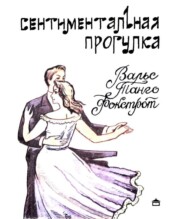По всем вопросам обращайтесь на: info@litportal.ru
(©) 2003-2024.
✖
The Oxford Book of American Essays
Настройки чтения
Размер шрифта
Высота строк
Поля
"That’s me," he ejaculated. "Right over there, down below those two oaks! Ever there?"
"No."
"My studio’s there now;" giving impressive accent to the word.
All the while these few words were passing he scrutinized me with unconcealed curiosity, puzzled, as well he might be, by my dress and equipment. Finally, after I had tied Kaweah to a tree and seated myself by the easel, and after he had absently rubbed some raw sienna into his little store of white, he softly ventured: "Was you looking out a ditch?"
"No," I replied.
He neatly rubbed up the white and sienna with his "blender," unconsciously adding a dash of Veronese green, gazed at my leggings, then at the barometer, and again meeting my eye with a look as if he feared I might be a disguised duke, said in slow tone, with hyphens of silence between each two syllables, giving to his language all the dignity of an unabridged Webster, "I would take pleasure in stating that my name is Hank G. Smith, artist;" and, seeing me smile, he relaxed a little, and, giving the blender another vigorous twist, added, "I would request yours."
Mr. Smith having learned my name, occupation, and that my home was on the Hudson, near New York, quickly assumed a familiar me-and-you-old-fel’ tone, and rattled on merrily about his winter in New York spent in "going through the Academy," – a period of deep moment to one who before that painted only wagons for his livelihood.
Storing away canvas, stool, and easel in a deserted cabin close by, he rejoined me, and, leading Kaweah by his lariat, I walked beside Smith down the trail toward Copples’s.
He talked freely, and as if composing his own biography, beginning:
"California-born and mountain-raised, his nature soon drove him into a painter’s career." Then he reverted fondly to New York and his experience there.
"Oh, no!" he mused in pleasant irony, "he never spread his napkin over his legs and partook French victuals up to old Delmonico’s. 'Twasn’t H. G. which took her to the theater."
In a sort of stage-aside to me, he added, "She was a model! Stood for them sculptors, you know; perfectly virtuous, and built from the ground up." Then, as if words failed him, made an expressive gesture with both hands over his shirt-bosom to indicate the topography of her figure, and, sliding them down sharply against his waistband, he added, "Anatomical torso!"
Mr. Smith found relief in meeting one so near himself, as he conceived me to be, in habit and experience. The long-pent-up emotions and ambitions of his life found ready utterance, and a willing listener.
I learned that his aim was to become a characteristically California painter, with special designs for making himself famous as the delineator of mule-trains and ox-wagons; to be, as he expressed it, "the Pacific Slope Bonheur."
"There," he said, "is old Eastman Johnson; he’s made the riffle on barns, and that everlasting girl with the ears of corn; but it ain’t life, it ain’t got the real git-up.
"If you want to see the thing, just look at a Gérôme; his Arab folks and Egyptian dancing-girls, they ain’t assuming a pleasant expression and looking at spots while their likenesses is took.
"H. G. will discount Eastman yet."
He avowed his great admiration of Church, which, with a little leaning toward Mr. Gifford, seemed his only hearty approval.
"It’s all Bierstadt, and Bierstadt, and Bierstadt nowadays! What has he done but twist and skew and distort and discolor and belittle and be-pretty this whole dog-gonned country? Why, his mountains are too high and too slim; they’d blow over in one of our fall winds.
"I’ve herded colts two summers in Yosemite, and honest now, when I stood right up in front of his picture, I didn’t know it.
"He hasn’t what old Ruskin calls for."
By this time the station buildings were in sight, and far down the cañon, winding in even grade round spur after spur, outlined by a low, clinging cloud of red dust, we could see the great Sierra mule-train, – that industrial gulf-stream flowing from California plains over into arid Nevada, carrying thither materials for life and luxury. In a vast, perpetual caravan of heavy wagons, drawn by teams of from eight to fourteen mules, all the supplies of many cities and villages were hauled across the Sierra at an immense cost, and with such skill of driving and generalship of mules as the world has never seen before.
Our trail descended toward the grade, quickly bringing us to a high bank immediately overlooking the trains a few rods below the group of station buildings.
I had by this time learned that Copples, the former station-proprietor, had suffered amputation of the leg three times, receiving from the road men, in consequence, the name of "Cut-off," and that, while his doctors disagreed as to whether they had better try a fourth, the kindly hand of death had spared him that pain, and Mrs. Copples an added extortion in the bill.
The dying "Cut-off" had made his wife promise she would stay by and carry on the station until all his debts, which were many and heavy, should be paid, and then do as she chose.
The poor woman, a New Englander of some refinement, lingered, sadly fulfilling her task, though longing for liberty.
When Smith came to speak of Sarah Jane, her niece, a new light kindled in my friend’s eye.
"You never saw Sarah Jane?" he inquired.
I shook my head.
He went on to tell me that he was living in hope of making her Mrs. H. G., but that the bar-keeper also indulged a hope, and as this important functionary was a man of ready cash, and of derringers and few words, it became a delicate matter to avow open rivalry; but it was evident my friend’s star was ascendant, and, learning that he considered himself to possess the "dead-wood," and to have "gaited" the bar-keeper, I was more than amused, even comforted.
It was pleasure to sit there leaning against a vigorous old oak while Smith opened his heart to me, in easy confidence, and, with quick eye watching the passing mules, penciled in a little sketch-book a leg, a head, or such portions of body and harness as seemed to him useful for future works.
"These are notes," he said, "and I’ve pretty much made up my mind to paint my great picture on a gee-pull. I’ll scumble in a sunset effect, lighting up the dust, and striking across the backs of team and driver, and I’ll paint a come-up-there-d’n-you look on the old teamster’s face, and the mules will be just a-humping their little selves and laying down to work like they’d expire. And the wagon! Don’t you see what fine color-material there is in the heavy load and canvas-top with sunlight and shadow in the folds? And that’s what’s the matter with H. G. Smith.
"Orders, sir, orders; that’s what I’ll get then, and I’ll take my little old Sarah Jane and light out for New York, and you’ll see Smith on a studio doorplate, and folks’ll say, 'Fine feeling for nature, has Smith!'"
I let this singular man speak for himself in his own vernacular, pruning nothing of its idiom or slang, as you shall choose to call it. In this faithful transcript there are words I could have wished to expunge, but they are his, not mine, and illustrate his mental construction.
The breath of most Californians is as unconsciously charged with slang as an Italian’s of garlic, and the two, after all, have much the same function; you touch the bowl or your language, but should never let either be fairly recognized in salad or conversation. But Smith’s English was the well undefiled when compared with what I every moment heard from the current of teamsters which set constantly by us in the direction of Copples’s.
Close in front came a huge wagon piled high with cases of freight, and drawn along by a team of twelve mules, whose heavy breathing and drenched skins showed them hard-worked and well tired out. The driver looked anxiously ahead at a soft spot in the road, and on at the station, as if calculating whether his team had courage left to haul through.
He called kindly to them, cracked his black-snake whip, and all together they strained bravely on.
The great van rocked, settled a little on the near side, and stuck fast.
With a look of despair the driver got off and laid the lash freely among his team; they jumped and jerked, frantically tangled themselves up, and at last all sulked and became stubbornly immovable. Meanwhile, a mile of teams behind, unable to pass on the narrow grade, came to an unwilling halt.
About five wagons back I noticed a tall Pike, dressed in checked shirt, and pantaloons tucked into jack-boots. A soft felt hat, worn on the back of his head, displayed long locks of flaxen hair, which hung freely about a florid pink countenance, noticeable for its pair of violent little blue eyes, and facial angle rendered acute by a sharp, long nose.
This fellow watched the stoppage with impatience, and at last, when it was more than he could bear, walked up by the other teams with a look of wrath absolutely devilish. One would have expected him to blow up with rage; yet withal his gait and manner were cool and soft in the extreme. In a bland, almost tender voice, he said to the unfortunate driver, "My friend, perhaps I can help you;" and his gentle way of disentangling and patting the leaders as he headed them round in the right direction would have given him a high office under Mr. Bergh. He leisurely examined the embedded wheel, and cast an eye along the road ahead. He then began in rather excited manner to swear, pouring it out louder and more profane, till he utterly eclipsed the most horrid blasphemies I ever heard, piling them up thicker and more fiendish till it seemed as if the very earth must open and engulf him.
I noticed one mule after another give a little squat, bringing their breasts hard against the collars, and straining traces, till only one old mule, with ears back and dangling chain, still held out. The Pike walked up and yelled one gigantic oath; her ears sprang forward, she squatted in terror, and the iron links grated under her strain. He then stepped back and took the rein, every trembling mule looking out of the corner of its eye and listening at qui vive.
With a peculiar air of deliberation and of childlike simplicity, he said in every-day tones, "Come up there, mules!"
One quick strain, a slight rumble, and the wagon rolled on to Copples’s.
Smith and I followed, and as we neared the house he punched me familiarly and said, as a brown petticoat disappeared in the station door, "There’s Sarah Jane! When I see that girl I feel like I’d reach out and gather her in;" then clasping her imaginary form as if she was about to dance with him, he executed a couple of waltz turns, softly intimating, "That’s what’s the matter with H. G."
Kaweah being stabled, we betook ourselves to the office, which was of course bar-room as well. As I entered, the unfortunate teamster was about paying his liquid compliment to the florid Pike. Their glasses were filled. "My respects," said the little driver. The whiskey became lost to view, and went eroding its way through the dust these poor fellows had swallowed. He added, "Well, Billy, you can swear."
"Swear?" repeated the Pike in a tone of incredulous questioning. "Me swear?" as if the compliment were greater than his modest desert. "No, I can’t blaspheme worth a cuss. You’d jest orter hear Pete Green. He can exhort the impenitent mule. I’ve known a ten-mule-team to renounce the flesh and haul thirty-one thousand through a foot of clay mud under one of his outpourings."
As a hotel, Copples’s is on the Mongolian plan, which means that dining-room and kitchen are given over to the mercies – never very tender – of Chinamen; not such Chinamen as learned the art of pig-roasting that they might be served up by Elia, but the average John, and a sadly low average that John is. I grant him a certain general air of thrift, admitting, too, that his lack of sobriety never makes itself apparent in loud Celtic brawl. But he is, when all is said, and in spite of timid and fawning obedience, a very poor servant.
Now and then at one friend’s house it has happened to me that I dined upon artistic Chinese cookery, and all they who come home from living in China smack their lips over the relishing cuisine. I wish they had sat down that day at Copples’s. No; on second thought I would spare them.
John may go peacefully to North Adams and make shoes for us, but I shall not solve the awful domestic problem by bringing him into my kitchen; certainly so long as Howells’s "Mrs. Johnson" lives, nor even while I can get an Irish lady to torment me, and offer the hospitality of my home to her cousins.

















